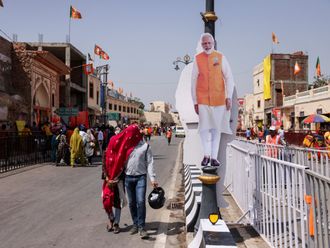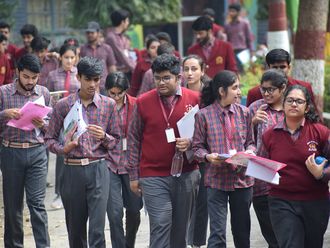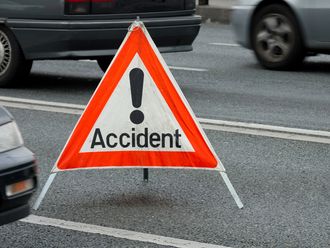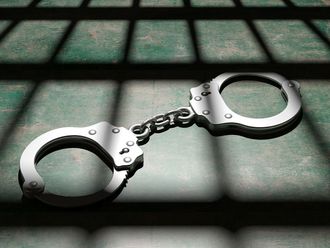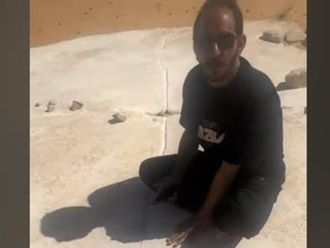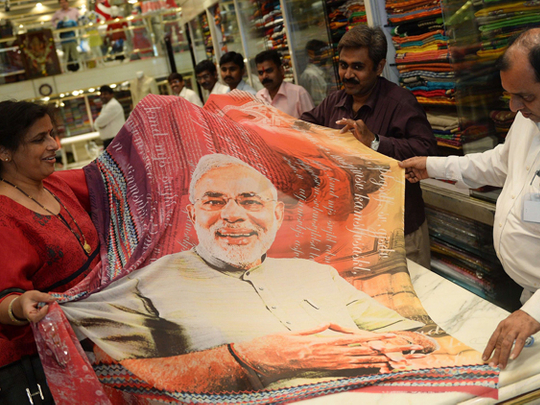
Ahmedabad: Ali Hussain is a prosperous young Indian Muslim businessman. He recently bought a Mercedes and lives in a suburban-style gated community that itself sits inside a ghetto.
In Gujarat, it is so difficult for Muslims to buy property in areas dominated by Hindus even the community’s fast-growing urban middle class is confined to cramped and decrepit corners of cities.
Hussain embodies the paradox of Gujarat: the state’s pro-business leadership has created opportunities for entrepreneurs of all creeds; yet religious prejudice and segregation are deeply, and even legally, ingrained.
If a Muslim enquires about a property in a new development, often the response is: “Why are you even asking?” said Hussain, speaking at his home in the Muslim neighbourhood of Juhapura, where filthy slum streets rub against smart new apartment blocks and enclaves.
Separation of communities is common across India. Nowhere is it as systematised as it has become in Gujarat.
That matters because the state’s chief minister, Narendra Modi, could soon run the country. Exit polls show that when results of a general election are announced on May 16, Modi’s Bharatiya Janata Party (BJP) and its allies will win a majority in parliament, almost certainly making him India’s next prime minister.
The 63-year-old Hindu nationalist has ruled the western state of Gujarat since 2001. As prime minister, Modi would lead not just 975 million Hindus but 175 million Muslims, around 15 per cent of India’s population and the third-largest Muslim population in the world.
Modi’s record in his home state is clouded by riots in 2002, when 1,000 people, mostly Muslims, died in a frenzy of mob violence. Modi still struggles to shake off the perception he did not do enough to stop the bloodshed, despite a Supreme Court investigation that found no case against him and his own insistence he did all he could to keep the peace.
Hussain is one of roughly 400,000 people living in Juhapura, a teeming Muslim township within Ahmedabad, Gujarat’s largest city. Many of them moved there after the 2002 riots. Local Hindus jokingly refer to it as Little Pakistan.
Memories of the 2002 rioting have not faded for the many residents of Juhapura who lost relatives, homes and businesses.
And its legacy has been increasing segregation.
In particular, a property law unique to Gujarat has perpetuated segregation, creating ghettos such as Juhapura and a sense of apartheid in some urban areas.
The Disturbed Areas Act, a law that restricts Muslims and Hindus from selling property to each other in “sensitive” areas, was introduced in 1991 to avert an exodus or distress sales in neighbourhoods hit by inter-religious unrest.
Modi’s government amended the law in 2009 to give local officials greater power to decide on property sales. It also extended the reach of the law, most recently in 2013 — 11 years after the last major religious riots.
The state government says the law is meant to protect Muslims, who account for just under 10 per cent of the state’s 60 million people. “It prevents ethnic cleansing and people being forced out,” a senior government official who requested anonymity told Reuters.
Critics say the act’s continued enforcement and the addition of new districts covered by it — about 40 per cent of Ahmedabad is now governed by the law — means it is effectively being applied as a tool of social engineering.
One consequence of the segregation: land and home prices in Juhapura and other Muslim areas have escalated more than in Hindu areas as the community finds its ability to expand and build more properties limited.
At the same time, some Muslims in Gujarat have been lifted on a tide of rising prosperity. The state has long been a model of economic success in India given its coastal location, large ports and industrialisation.
According to National Survey Sample Office figures, for instance, Gujarat is one of the top Indian states for Muslim employment. The national unemployment rate among Muslims was almost double that of Gujarati Muslims in 2009-10.
But the picture is far from clear. Data from the same source showed nearly one in three Gujarati Hindus had a secondary education or higher in 2009-10, against one in five for Muslims — roughly in line with the average for Muslims across the country.
Zafar Sareshwala is among those who have prospered. One of Gujarat’s wealthiest Muslims, he owns a chain of BMW showrooms.
Sareshwala supports Modi even though his family was financially ruined by the 2002 unrest. His view changed overnight the following year, he said, after a meeting with Modi.
“He was deeply anguished. He was apologetic about the scale of the damage,” Sareshwala recalled. “Modi promised justice would be delivered and said he would never discriminate against Muslims.” Sareshwala estimated that 30 per cent of Gujarat’s Muslims now back the BJP thanks to urban development and access to services that Modi has brought. Opinion polls have not projected the Muslim vote in Gujarat.
“People call him a dictator, I call him decisive,” he said.
Even much poorer Muslims back Modi. In a dirt-poor Ahmedabad riverside slum of about 150 families, most of them Muslim, five of eight women who spoke with Reuters said they had voted for the BJP, even though Modi’s government bulldozed their rickety homes two years ago, forcing them to rebuild away from the waterfront.
“Modi has done some good work. Our children can get scholarships and school meals. Women feel protected, and widows get compensation,” said 48-year-old Shabnam Banu, sitting on the floor with her friends in a simple room where a slow-moving ceiling fan did little to alleviate the pre-monsoon heat.
Still, Banu herself couldn’t bring herself to vote for Modi, selecting the “none of the above” option on election day.
“Our main fear is he will throw us out of the country,” she said. “What if some of his people come and attack us?”
In Juhapura, businessman Ali Hussain has made it his mission to break down barriers between the state’s communities. Two years ago he persuaded a major developer to sell homes to Muslims in luxury townships on the edge of Ahmedabad, and he is now working with a Hindu company to produce Halal food.
Other initiatives have flopped. In February, Hussain organised a Hindu-Muslim business conclave, sponsored by the state government and addressed by Modi. Few Muslims turned up.
“Truly speaking, the Muslims, they are not with Modi,” he said.


